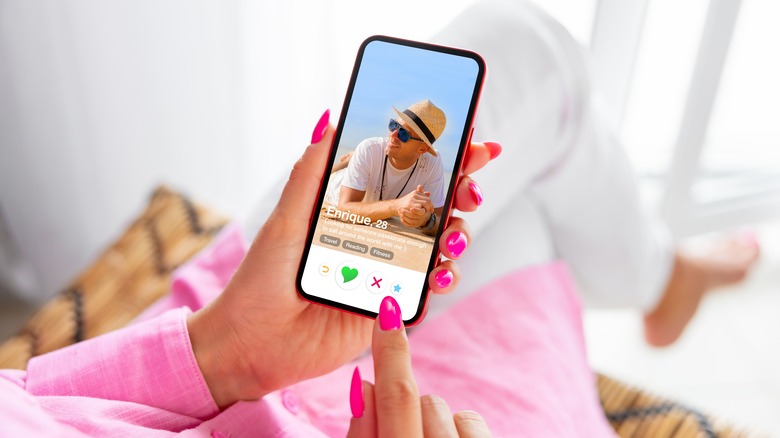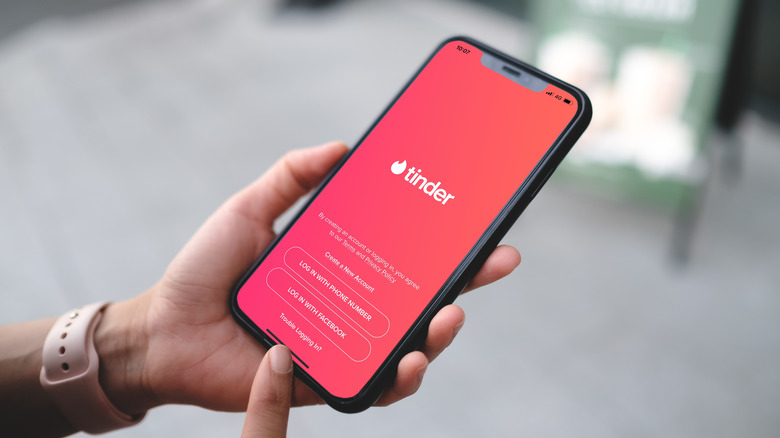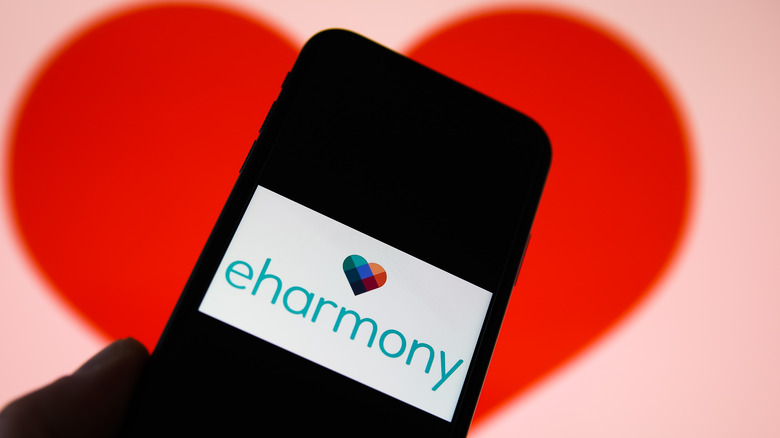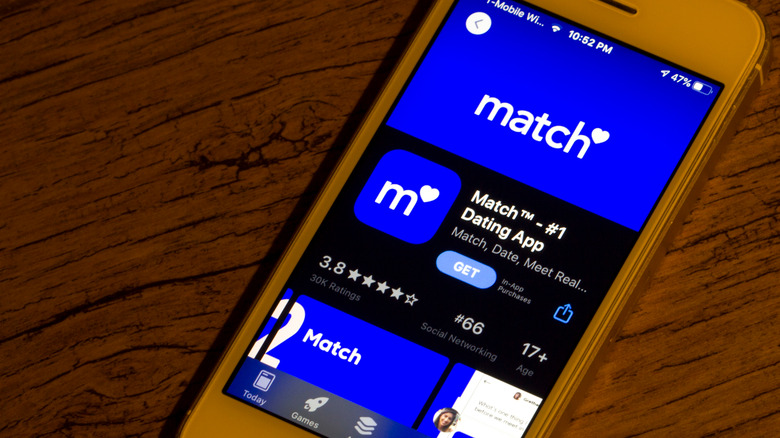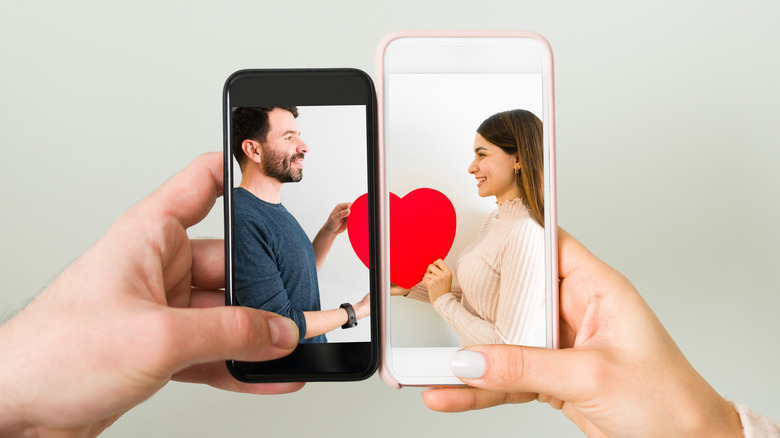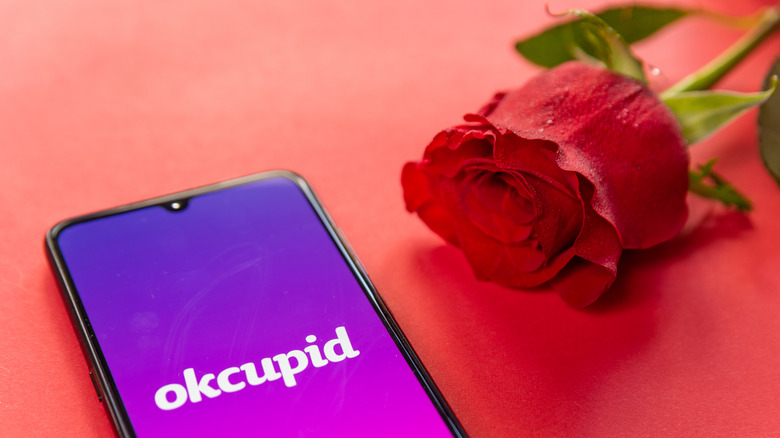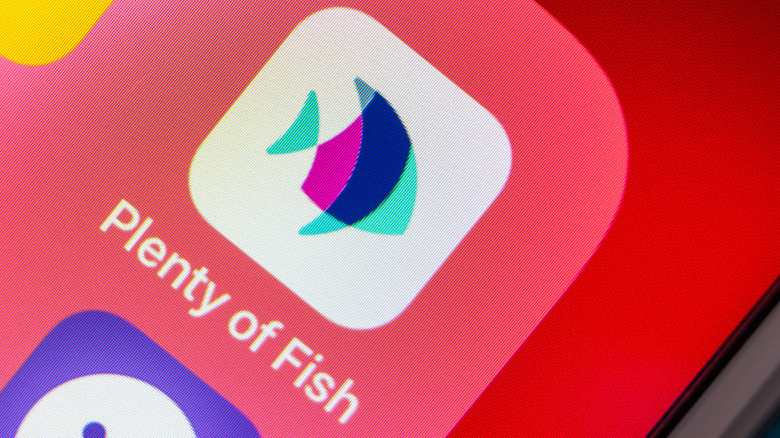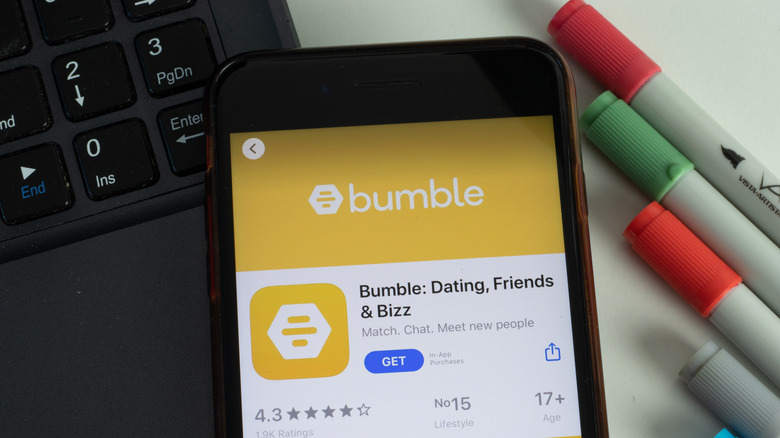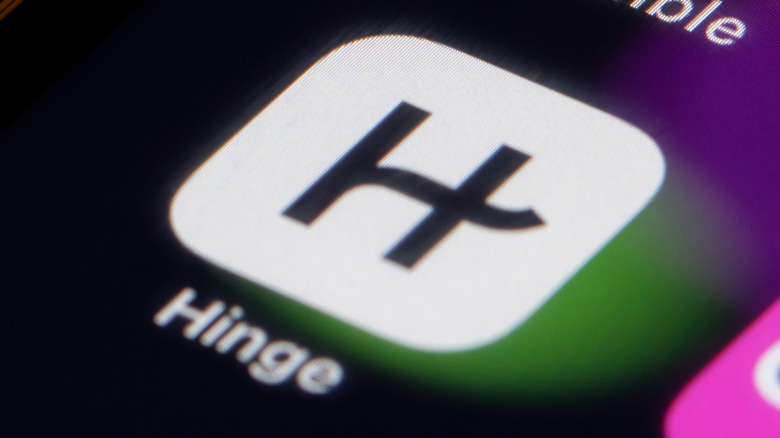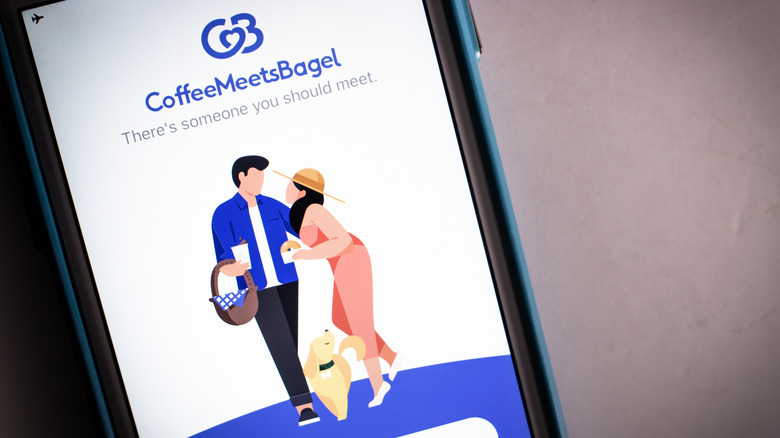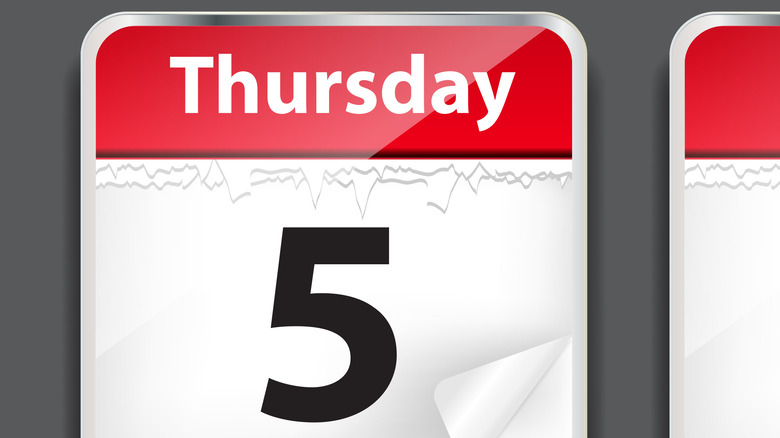The Best Dating Apps Of 2022
Online dating dates back to the mid-1990s, but took years to become mainstream. There was a time when nobody wanted to admit their internet dating participation, but these days, it's hard to find couples who met any other way. In a survey from 2017, 39% of couples said they had met online; only 22% reported the same in 2009. Additionally, according to a 2020 Pew Research Center survey, three out of every 10 U.S. adults claimed to have used an online dating site or app to look for love. Today, the online dating industry is worth about $4 billion (per IBISWorld).
During the pandemic, online dating became even more popular, with Tinder reporting in March 2020 that users had swiped over three billion times in one day (per Fortune). Whether or not daters are able to meet out in the real world, "dating apps provide that opportunity for you to meet people outside of your typical circles that you would be in day to day," Kim Kaplan, CEO and founder of the video-driven dating app Snack, told the Los Angeles Times.
With more web-based dating options than ever, "dating has become as competitive as the job market," one relationship coach told Women's Health – it's hard to determine which one is best for your needs. So, we did the digging for you and compiled a list of the best dating apps for 2022.
Tinder
Shortly after launching in 2012, Tinder changed online dating forever. According to a February 2014 Time feature, the number of Tinder users had increased by one million in only 60 days. As Tinder Co-founder Sean Rad explained, "Computers are going extinct, and I thought mobile is the future. I wanted to build platforms through there." Tinder was designed to be a game requiring little effort — the key to its success.
Though Tinder may not be best for meeting a potential spouse, it does happen. In 2018, The Atlantic noted that 93 of 1,000 couples featured in The New York Times' wedding announcements section that year met on dating apps, including Tinder.
Tinder made our list for its ease of use, its ability to provide mindless fun (with the possibility of something more), and its access to more people than any other dating app or website — which can also be a disadvantage if you're using the app to find something serious. Relationship therapist Shawntres Parks, Ph.D., LMFT, recommends "mak[ing] sure you use this app with intention, and you're not just sitting on your couch swiping with the TV on in the background" (per Women's Health).
Tinder, like Match, offers paid subscriptions, which include features such as ad removal, unlimited right swipes, and the ability to change your location to swipe from anywhere (via The Guardian).
eHarmony
In some ways, eHarmony is the anti-Tinder. Because membership costs about $500 per year and filling out the profile section is time-consuming, per Women's Health, its users are serious about finding someone special. "You are exposing a lot, and being really vulnerable upfront, and that can have a big payoff," said relationship expert Shawntres Parks, Ph.D., LMFT. "It's a very commitment-focused space."
In February 2017, eHarmony CEO Grant Langston spoke with Insider about his goal to reach younger users. "When I see people who use Tinder and they say in their headline they're not looking to hook up and want a real relationship, I'm like, that's our failure," he said. "That person should be on eHarmony." According to Cosmopolitan, eHarmony began advertising during shows like "Love Island" and "First Dates" to reach a younger audience.
Apparently, these efforts are working. Per a June 2021 Cosmopolitan review, more young people are flocking to eHarmony. Even Langston confirmed to CNN that the app's average user is now closer to age 30, rather than 36 or 37 like it once was.
Interestingly, the online dating platform, available as an app for iOS and Android, sees registration surges during times of uncertainty, including the COVID-19 pandemic (via Cosmopolitan), after the 2016 election and after the 9/11 attacks. "People want to be with someone in that kind of environment," Langston said. Despite these shifts, the company's mission is not changing. Said the CEO, "We're always about trying to find you your last first date."
Match
Dating back to 1995, Match — owned by Match Group, the company behind Tinder, OkCupid, and more — is the largest online dating service. As an early user, Andrew Gerngross, told Fast Company, "In the early days, there was a sense of magic about it, for me at least, and I suspect for other people, too, because it was so new and untested." According to a 2022 Forbes review, the pros of Match include easy setup, the ability to cancel subscriptions, and sponsored in-person events for premium subscribers.
Match, now available for iOS and Android, helps singles meet based on specific criteria. Users complete a personal profile with details on their location, appearance, education, lifestyle, career, interests, and more. Posting a profile is free, with paid plans starting at $21.84 a month. Per the Match website, the majority of users (44%) are between the ages of 30 and 49, and eight out of 10 users have some college education. Mashable rates Match users as fairly relationship-minded.
Enhanced safety and privacy features include the ability to screen dates before meeting. Users can also call or text matches without using their own phone numbers, view profiles in private mode, and receive notifications when messages are read (via Forbes). And, in 2021, as The Wall Street Journal noted, Match added a human matchmaker component to its app. Additionally, Match offers a complimentary six-month paid membership if you don't find your person within six months (via Mashable).
JDate
Following the early success of Match was JDate, an online dating service for Jewish singles, which launched in 1997, per The New York Times. Owned by Spark Networks, the parent company behind other popular faith-based dating sites such as Christian Mingle, JDate boasts over 200,000 users, according to one 2022 review. It's popular with singles of all ages, including older adults. As relationship coach Shawntres Parks, Ph.D., LFMT, told Women's Health, "It is a great vetting tool if you want to date someone who aligns with your faith." JDate's website features its many success stories, showing that many of its users are genuinely looking for love.
JDate, which is available as an app for iOS and Android, requires its users to complete a personal profile, which is more time-consuming than Tinder but less than eHarmony, for example. The user profile includes questions on everything from their idea of the ideal first date and what they seek in a partner to their religious denomination. Two denomination options even include "other" and "willing to convert," as the service is apparently also popular with those who are not Jewish.
Christian Mingle
Christian Mingle, which debuted in 2001, is a top online dating platform for Christian singles. As of October 2022, the service has more than 15 million subscribers, with 71% describing themselves as regular churchgoers, according to a survey by the app's owner, Spark Networks (via Forbes). Another survey found that Christian Mingle contributed to 29% of Christian marriages. "Christian Mingle is a great option for singles seeking a faith-based relationship," CEO Eric Eichmann told Forbes. "Christian Mingle attracts singles seeking a deeper, meaningful connection through a shared faith and shared values."
The service, available as an app for iOS and Android, has enhanced safety features, including fully vetted profiles and appropriate action taken in cases of fraud and harassment. Customer service is also top-notch, with a detailed support page and a simple online form to submit.
To get started, users fill out a profile, though it doesn't have to be complete (only religious denomination and education level are initially required). Other questions focus on appearance, lifestyle, interests, church activity, and more, with space provided for the user to write about themselves and what they want in a partner.
Christian Mingle offers unpaid and paid memberships, which are a bit steep, starting at $49.99 a month. For free, you can set preferred search criteria, view profiles, sort matches, send "likes," and access daily two-way matchmaking — but you have to pay to view and send messages. Paid subscriptions also include the ability to hide your profile and browse privately.
OkCupid
OkCupid is an all-around great online dating service for users who are looking for relationships. An initial screening process consists of 350 questions with thousands of options to choose from. According to a 2014 Wired feature, the app's mathematical approach and comparisons to eHarmony's algorithm-driven design make sense, considering that OkCupid was founded by Harvard math students Chris Coyne, Max Krohn, Christian Rudder, and Sam Yagan in 2004.
OkCupid is also cost-effective, as a free membership entitles you to do more than what's possible on other dating apps. Paid subscriptions are available, though, which allow users to do things like send unlimited likes, include dating deal-breakers in their profiles, browse anonymously, and more. "It's a good compromise — you still have the benefit of the questions, without the price tag," Shawntres Parks, Ph.D., LFMT, a couples therapist and relationship expert, told Women's Health.
Per The Drum, OkCupid was one of the first online dating sites to go mobile with a user-friendly interface. To compete with dating app juggernauts like Tinder, OkCupid began marketing itself as an "inclusive" dating app and added questions regarding political topics, such as climate change. So far, it seems to be working. "We have an ongoing effort and commitment to have the best experience of any dating app for all daters, but in particular for daters that are not cis-hetero," said Melissa Hobley, OkCupid's global chief marketing officer.
Plenty of Fish
Like OkCupid, Plenty of Fish is also a free dating site and app available for iOS and Android. As the name implies, Plenty of Fish certainly has a lot of fish, with some three million members across 20 different countries (per U.S. News & World Report). Like many of the other services, Plenty of Fish offers paid subscriptions, and starting at $12.90 a month for three months, they're fairly affordable. However, since you can send and receive messages for free, a paid membership isn't necessary, unless the perks of no ads and additional filtering options are important to you.
Plenty of Fish, launched in 2003, asks users to answer 70 questions regarding traits including physical appearance, lifestyle, work, and religion. Based on these parameters, the site's algorithm finds potential matches. According to a review from Virtual Location, the app's benefits include its ease of use, affordability, and an array of filters to help you find your person.
Bumble
Bumble is a popular dating app designed to allow women to make the first move, thus creating a safer, more positive space for women navigating the world of online dating. This is what Bumble's young female founder and CEO, Whitney Wolfe Herd, intended. She was inspired to start Bumble because of her past experiences in toxic, abusive relationships, as she told Time in a March 2021 spread. According to the magazine, since 2014, Bumble has amassed 8.6 billion connections among millions of users in over 237 countries. What is unique about Bumble is its several hundred brand ambassadors on over 100 college campuses and future plans to open its own coffee shops.
As relationship therapist Shawntres Parks, Ph.D., LMFT, explained to Women's Health, Bumble users have only 24 hours to send the first message to someone after matching, which, she pointed out, is helpful for men who are shy or tired of feeling obligated to make the first move, as is the norm on most dating apps.
Bumble offers unpaid and paid memberships, including Bumble Boost, which offers unlimited swiping (to alert other members of your interest) and Bumble Premium, which offers everything that Bumble Boost does, plus the ability to view who has liked your profile (via The Guardian).
Hinge
You may have heard about Hinge, launched in 2013, which markets itself as "the dating app designed to be deleted." Launched around the same time as Tinder, the focus of Hinge is on relationships rather than casual encounters. Hinge is now owned by Match Group, which also owns Match, Tinder, Plenty of Fish, and more.
According to Business of Apps, Hinge has 20 million users, and 15% of them are Hinge members. "It seems to appeal to people who are more relationship-minded but don't want to sign up for something as serious as eHarmony," relationship expert Shawntres Parks, Ph.D., LMFT, shared with Women's Health.
Like online dating platforms such as Match and OkCupid, Hinge requires users to set up a profile and answer question cards. Its popular voice notes feature allows users to answer questions verbally. Hinge also has a "Most Compatible" feature that examines user activity, including the types of profiles one likes most often, similar to targeted ads but for dating.
Of the app's 20 million users, 800,000 are paid members (via Business of Apps). Known as "Hinge Preferred," paid memberships start at $19.99 a month (via PC Magazine) and offer unlimited "likes," additional search preferences, and access to "dating experts," according to one review from Grazia.
Coffee Meets Bagel
We love that Coffee Meets Bagel (besides its cute name) is based on mutual connections, such as that friend of a friend you may have lots in common with but have never had the opportunity to meet. The app is especially great if you're turned off of dating apps due to bad experiences, as relationship coach Shawntres Parks, Ph.D., LMFT, explained to Women's Health.
Coffee Meets Bagel boasts a unique algorithm that looks at factors including age, location, work, interests, education level, religion, and friends on social networks, delivering fewer matches with each more closely aligned with users' needs — a focus on quality versus quantity. Coffee Meets Bagel Co-founder and Chief Dating Officer Dawoon Kang explained to Lifestyle Asia how they "update your potential matches at a speed of 10 potential matches per second." Kang believes this "slower approach to dating" is more effective over the long term. "Take the time to get to know someone," she said. "It's hard to do that when you are swiping hundreds of profiles and juggling multiple chat lines."
Each Coffee Meets Bagel user is considered a "coffee," while each match is considered a "bagel." Users have 24 hours to either like or pass on each match. If both members are interested, they are invited to chat via a private, secure line that expires after seven days (via Forbes). A premium membership provides additional member information and enables users to contact every match that likes them, per The Guardian.
Thursday
A common complaint about online dating is that it's time-consuming. Thursday, founded in 2018, is a dating app developed to address this problem. The app works only one day a week — on Thursdays – "because there's more to life than dating apps," states Thursday's website. Every Thursday, members can connect with other users for 24 hours and decide whether they'd like to meet. Like Cinderella, you'd better act quickly, since, by midnight, all data gets deleted and you start fresh the following week.
Another complaint about online dating is how long it can take for users to meet in person after talking virtually or by phone. According to dating expert Hayley Quinn, communicating virtually for too long often leads to disappointment, with built-up expectations not always equaling reality. Thursday speeds up this process because it's "designed to get you on a date that day, stopping this back-and-forth messaging before actually meeting in real life," Jess Wreford, digital creative lead at Thursday, told Dating News. And relationship expert Shawntres Parks, Ph.D., LMFT, added, "Thursday offers a fun opportunity to liven up a formerly uneventful day of the week."
Thursday also offers the opportunity to meet in person at company-sponsored events in New York City and London, with more cities to come — something that's become especially popular again since the pandemic, as CNBC noted.
Stir
Stir, launched in 2022, is designed specifically for single parents looking for love — or those open to dating someone with kids. Match Group Vice President Dinh Thi Bui described the platform in an official media release as "giving single parents a dating experience where they are celebrated and feel like they can be themselves" so they "can truly focus on having a personal life beyond navigating parenthood."
It's a smart move on the part of Stir's parent company, Match Group, as some 20 million single moms and dads in America often feel that traditional dating apps don't suit their needs. "This app offers a chance to be free of the 'when do I share that I have kids' dilemma," relationship therapist and coach Shawtres Parks, Ph.D., LMFT, told Women's Health. A cool feature of Stir is "me time," which lets users let each other know their available time away from parenting duties to more easily coordinate dates (via CNBC). Added Parks: "Daters who previously might have had trouble working around their busy parenting-filled days will instantly have something in common with the community on this app."
It's about time that app developers started targeting more specific segments of the population in addition to Christian and Jewish singles. In addition to Stir, there is OurTime, geared toward older adults; Hawaya, for Muslim singles; BLK, for Black singles; Grindr, for LGBTQ+ adults; HER, for lesbian singles; and FEELD, for polyamorous adults seeking non-monogamous relationships.
